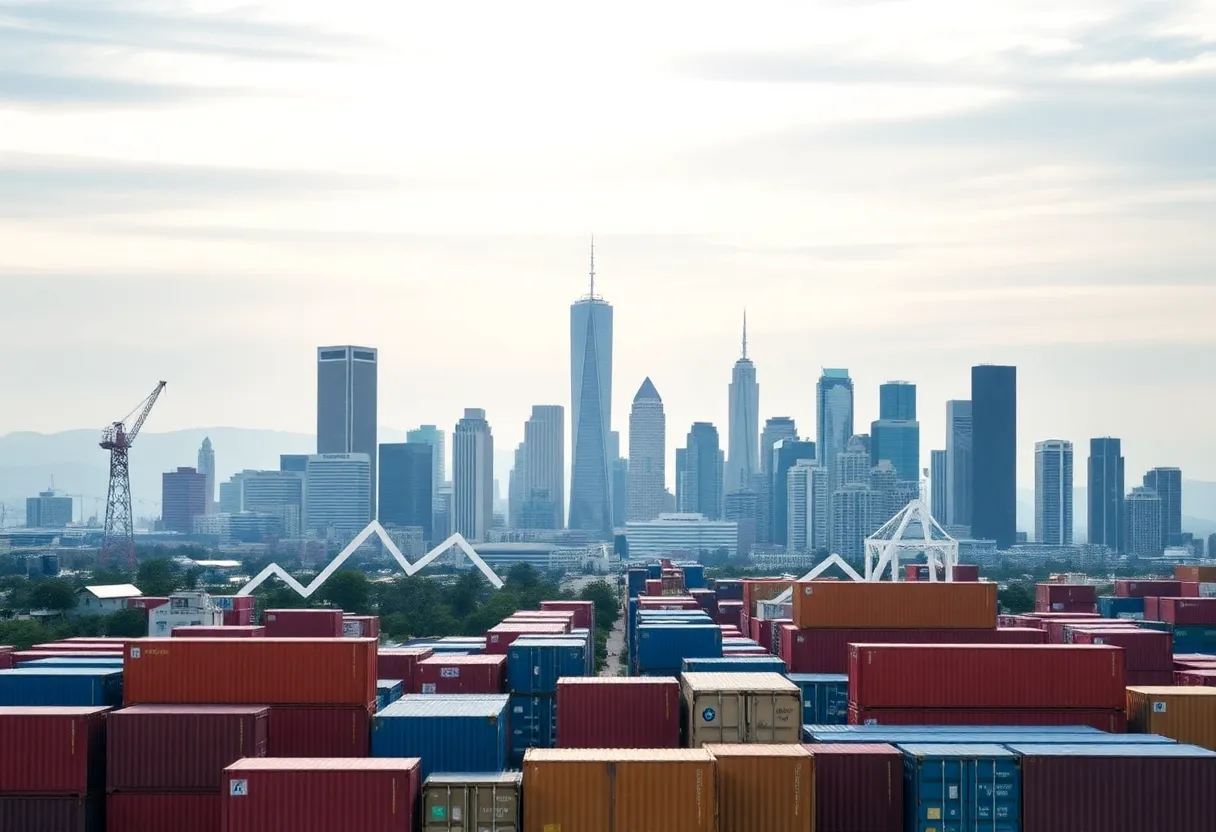News Summary
California has officially surpassed Japan to become the world’s fourth-largest economy, achieving a nominal GDP of $4.1 trillion in 2024. Governor Gavin Newsom attributes this growth to investments in sustainability and innovation. However, the state faces potential threats to its economic prosperity due to federal tariff policies. A lawsuit filed against the Trump administration highlights concerns regarding the impact of tariffs on California’s trade, particularly with major partners like Mexico and China. Despite its economic success, California must overcome significant challenges including job losses and housing affordability.
California Surpasses Japan to Become the World’s Fourth-Largest Economy Amid Trade Tariff Concerns
California has officially surpassed Japan, boasting a nominal gross domestic product (GDP) of $4.1 trillion in 2024, as reported by Governor Gavin Newsom. This achievement makes California the world’s fourth-largest economy, trailing only the United States, China, and Germany. In contrast, Japan’s nominal GDP for the same period stood at $4.02 trillion.
The state’s economic growth has outpaced the national average, recording a 6% increase last year compared to the U.S. growth rate of 5.3%. Notably, China and Germany experienced lower growth, with rates of 2.6% and 2.9%, respectively. Governor Newsom attributed this success to a commitment to investments in people, sustainability, and innovation.
Threats to Economic Prosperity
Despite these positive indicators, Newsom voiced concerns regarding threats to the state’s economy stemming from President Trump’s tariff policies. He emphasized that California contributes approximately 14% of the nation’s GDP and has a population of around 40 million residents. Major sectors bolstering California’s economic strength include technology—primarily centered in Silicon Valley—real estate, and finance.
Legal Action Against Tariff Policies
In response to these tariffs, a lawsuit was filed in federal court by Newsom against Trump’s use of emergency powers to implement tariffs. The lawsuit argues that the President’s authority to impose tariffs on nations such as Mexico, China, and Canada without Congressional approval is both unlawful and unprecedented. The legal action was initiated on April 16, with claims suggesting that the tariffs have disrupted supply chains, inflated costs, and inflicted severe financial damages to California’s economy.
Impact of Tariffs on California’s Trade
As of 2024, California engaged in approximately $675 billion in two-way trade, with Mexico, Canada, and China serving as its top trading partners. Over 40% of the state’s imports originated from these three countries, totaling $203 billion out of more than $491 billion in total imports last year. Experts have cautioned that the tariffs could significantly affect California’s $300 billion trade and logistics sector, putting its economic growth at risk.
Wider Implications and Other Lawsuits
California’s challenges are echoed in similar legal actions taken by twelve other states against the Trump administration regarding the imposition of tariffs on American consumers. The ramifications of these tariff policies have raised alarms among experts and economists alike, who argue that they could severely impact California’s health as an economic powerhouse intertwined with global markets and entrepreneurial ventures.
Remaining Economic Challenges
Alongside its remarkable growth, California grapples with ongoing financial inequalities and pressing challenges such as housing affordability, homelessness, and infrastructure issues. Furthermore, the state has experienced a net loss of 154,000 jobs in the private sector since September 2022, contrasting sharply with a gain of 361,000 jobs in the public sector. These disparities underscore the complex landscape in which California operates as it navigates its growth while addressing critical social and economic issues.
As California progresses and expands its economic influence globally, it must simultaneously confront the internal and external challenges that threaten to compromise its future prosperity. The ongoing situation calls for vigilant monitoring, especially surrounding the impacts of federal tariff policies on the state’s diverse economy.
Deeper Dive: News & Info About This Topic

Author: STAFF HERE COSTA MESA WRITER
The COSTA MESA STAFF WRITER represents the experienced team at HERECostaMesa.com, your go-to source for actionable local news and information in Costa Mesa, Orange County, and beyond. Specializing in "news you can use," we cover essential topics like product reviews for personal and business needs, local business directories, politics, real estate trends, neighborhood insights, and state news affecting the area—with deep expertise drawn from years of dedicated reporting and strong community input, including local press releases and business updates. We deliver top reporting on high-value events such as the OC Fair, Concerts in the Park, and Fish Fry. Our coverage extends to key organizations like the Costa Mesa Chamber of Commerce and Boys & Girls Clubs of Central Orange Coast, plus leading businesses in retail, fashion, and technology that power the local economy such as Vans, Experian, and South Coast Plaza. As part of the broader HERE network, including HEREAnaheim.com, HEREBeverlyHills.com, HERECoronado.com, HEREHollywood.com, HEREHuntingtonBeach.com, HERELongBeach.com, HERELosAngeles.com, HEREMissionViejo.com, HERESanDiego.com, and HERESantaAna.com, we provide comprehensive, credible insights into California's dynamic landscape.


